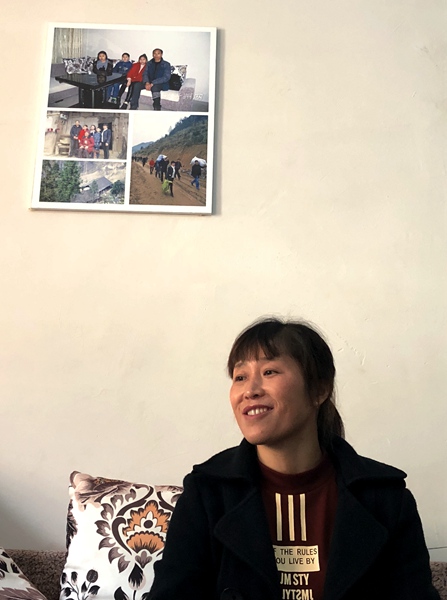Villagers move up from old 'machete'






Sense of community
Public servants also mitigate such issues as dialects. Relocated residents from different settlements often do not understand each other well. And the government organizes events such as dragon boat races and singing competitions to build a shared sense of community.
The government is considering a plan to provide gardens for residents to grow crops in, so they do not feel entirely uprooted from their agrarian identities.
Livelihood challenges persist despite government efforts, said Zhu Yongxue, who has served as head of Yikoudao for nearly three decades.
"Finding a job in Tongren is still hard. It's a city-but a small city," he said.
"Industry is still developing. And people from villages are still adjusting. There are a lot of new rules for them to follow."
Many relocated children are still getting used to advanced schools. Some struggle, especially in subjects such as English.
Still, Zhu and his colleagues have persuaded most middle-aged people to move.
"I'm still young in the village," the 55-year-old said. "Everyone ages 20 to 40 has left."
Deng Zaifa said his three younger brothers have relocated.
"My brothers told me their new houses are good," the 60-year-old said.
"They have furniture and running water."
Deng runs a restaurant for tourists in Yikoudao.
"I thought it would make more than farming," Deng said.
He owns 0.2 hectares of "not-very-fertile" land and raises pigs.
Deng earns 10,000 to 20,000 yuan from his restaurant during the peak season from May to July.
- From crested ibises to pandas, China lights conservation path
- Plateau poised for world-class copper hub tag
- Xi calls for winning tough anti-graft battle
- Surging flu cases drive up demand for drug
- Nanchang funds 19 free funeral venues after tragedy
- Massive ice sculpture replicates CNS?Liaoning aircraft carrier

































